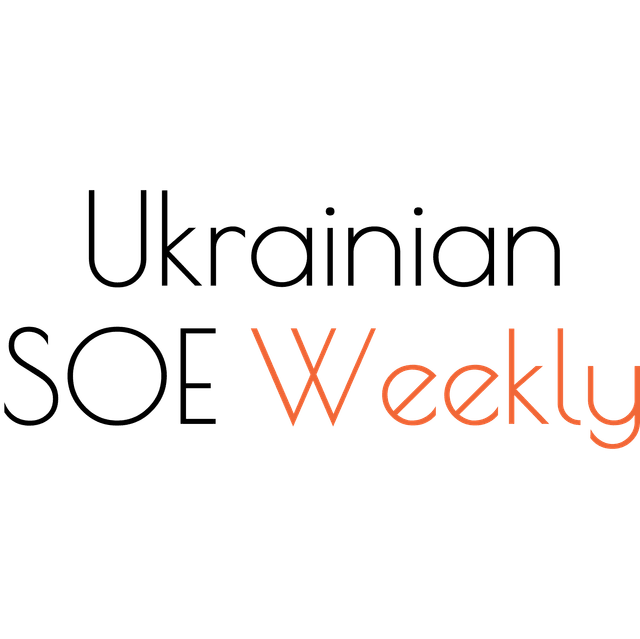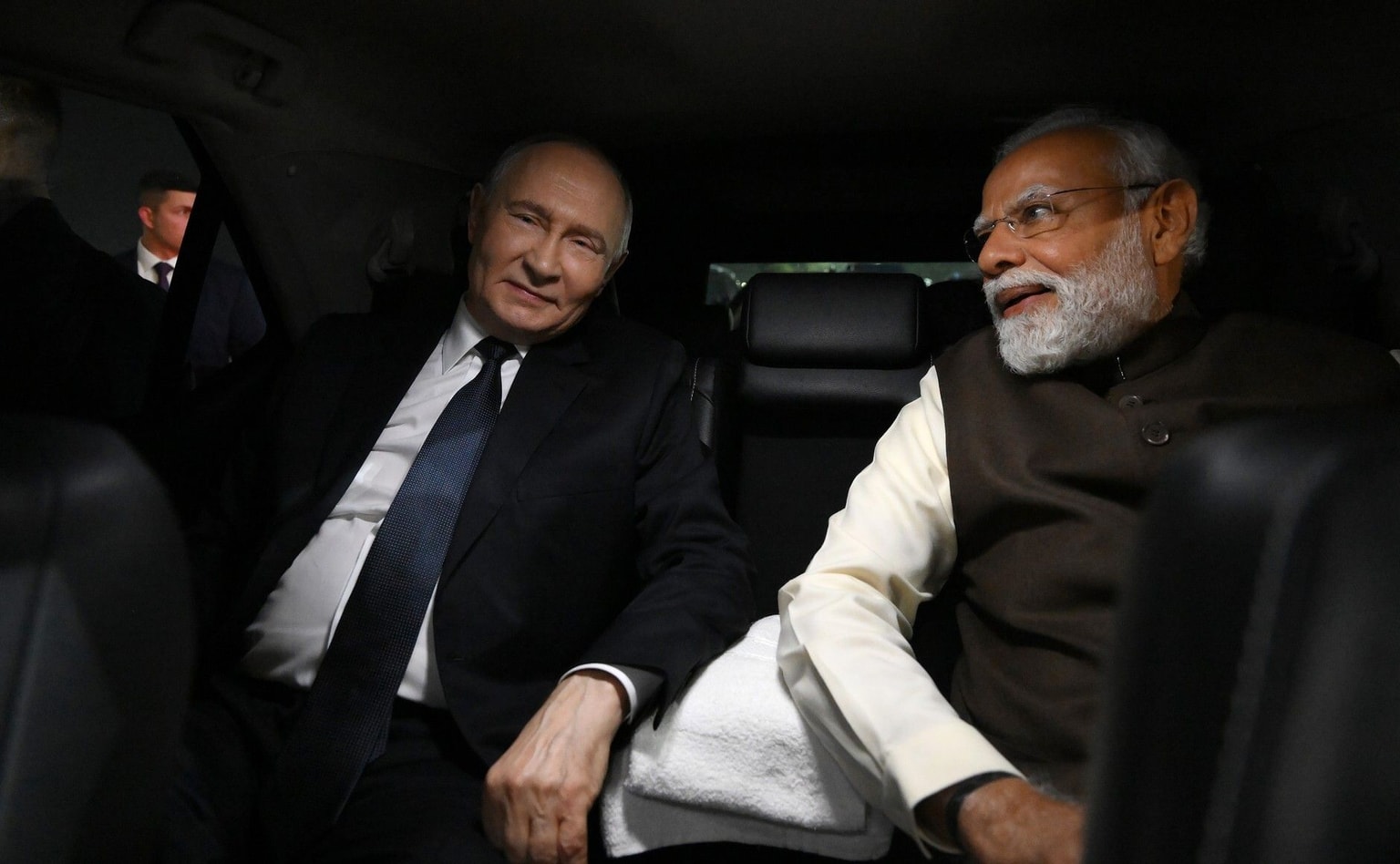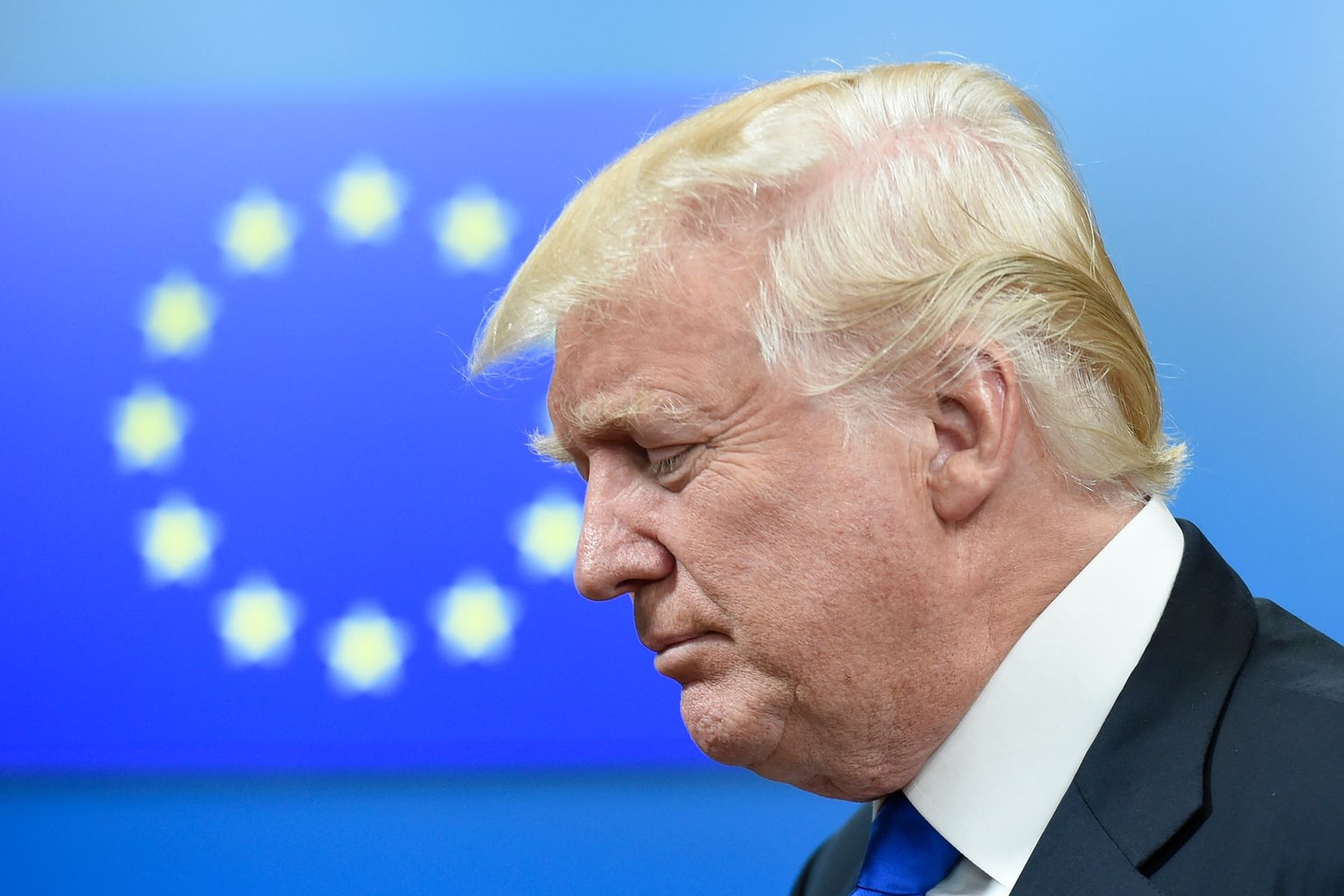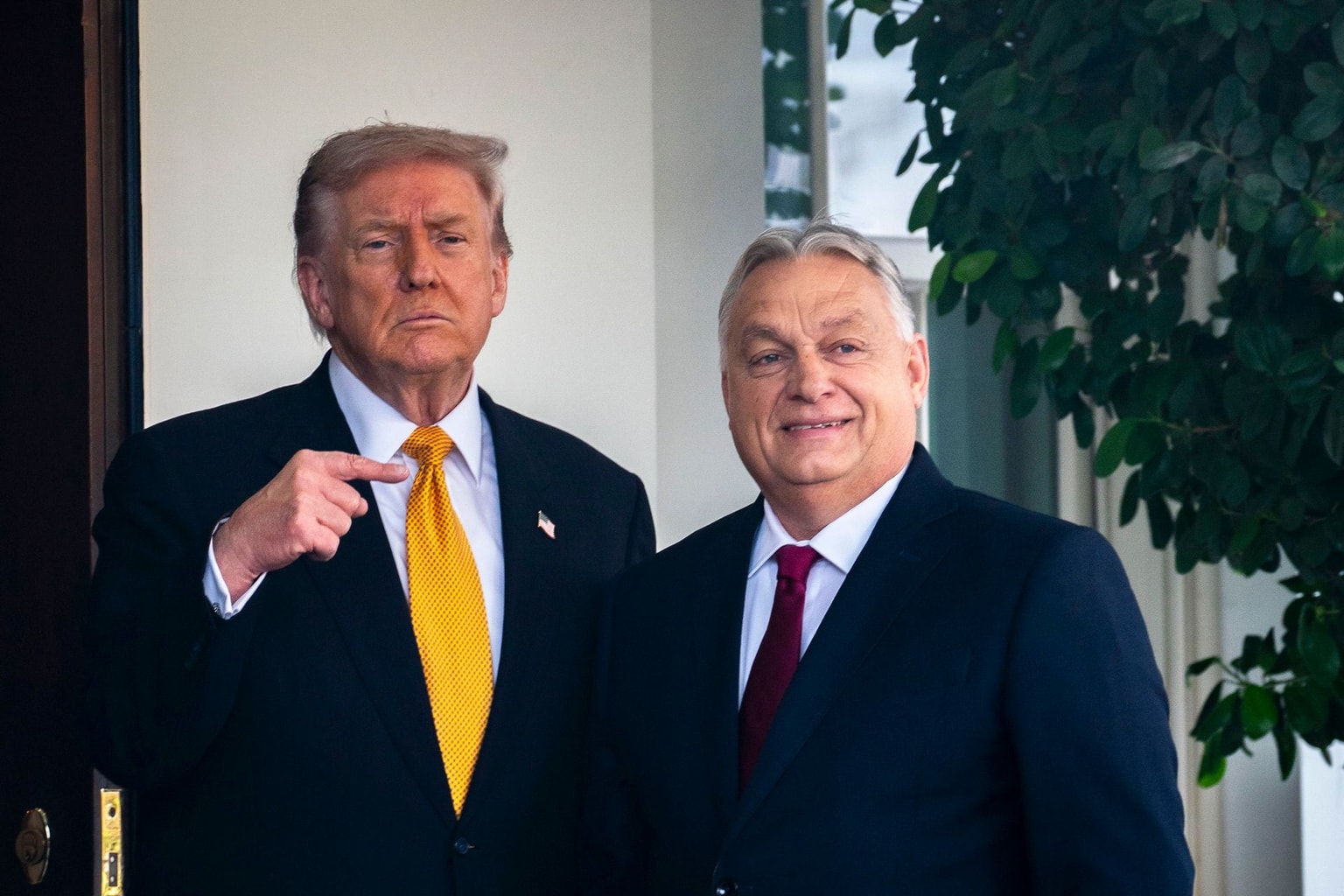Ukrainian State-Owned Enterprises Weekly – Issue 65

Editor’s Note: This is issue 65 of Ukrainian State-Owned Enterprises Weekly covering events from Feb. 12-18, 2022. The Kyiv Independent is reposting it with permission.
Corporate governance in SOEs
Ex-CEO Kobolyev says he did not receive full remuneration from Naftogaz – Naftogaz refutes, refers to Hr 600 million paid as Stockholm bonus. Former Naftogaz’s CEO Andriy Kobolyev told Forbes that he only got part of his remuneration from Naftogaz.
“I was paid a major part of the money, but not all. Therefore, some proceedings are quite possible. This will not necessarily be litigation, for a start, I will try to negotiate,” Kobolyev said. He also added that he was not prepared to comment on the specific figures of the remuneration he received from Naftogaz.
Naftogaz responded that Kobolyev received all the payments that he was supposed to get in accordance with his contract and Ukrainian law.
Kobolyev received a bonus of Hr 600 million for Naftogaz’s victory over Gazprom in the Stockholm court of arbitration. In 2018, he was paid the first part of the bonus, Hr 261 million. A criminal case was initiated into this pay-out, which allegedly exceeded the government-set remuneration cap for a state-owned company’s CEO.
According to Naftogaz, Kobolyev received the second part of the bonus (Hr 339 million – SOE Weekly) in 2021 after he was dismissed. He did so automatically, without the input of the company’s new management: The remuneration was paid according to a bank guarantee under a modification to his CEO contract signed by Kobolyev and Naftogaz’s former board chair, Claire Spottiswoode, in March 2020. The terms of this bank guarantee were approved by the supervisory board in April 2020.
Naftogaz added that this highly unusual payment mechanism was used because Kobolyev wanted to assure himself of getting all the money paid. However, he did not pay the bonuses to the members of the arbitration team, which he did not even lead, although they were directly involved in the arbitration and ensured the Stockholm victory that made Gazprom pay $5 billion to Naftogaz.
The company expects Kobolyev to publicly refute his statement.
In SOE Weekly (Issue 35), we reported that according to the Kyiv Post, Naftogaz’s top management received multi-million dollar bonuses in 2020. It is the supervisory board that decides how much management is paid.
The company’s 2020 annual report only disclosed the total pay-out of nearly $25 million to the management team (17 top officials), including five executive board members, without providing a breakdown of how much each executive got.
According to the remuneration report seen by the Kyiv Post and later published by Ukrainska Pravda, ex-CEO Andriy Kobolyev got the largest share, a total of Hr 347 million ($ 12.7 million), broken down as follows:
- Hr 6.3 million – base pay;
- Hr 338.6 million – bonus relating to CEO’s performance in previous years and towards the end of his term (de facto, a bonus for the Stockholm arbitration which was paid via bank guarantee – SOE Weekly);
- Hr 2.1 million – other benefits.
Kobolyev later claimed that he had not received any “real monetary compensation for the period after the extension of (his) contract in March 2020” and promised to give an interview on this topic soon. Naftogaz denied this and said that Kobolyev did get paid.
In SOE Weekly (Issue 36), we reported that in his interview with Liga.net, Kobolyev commented: “My contract was renewed by the Cabinet of Ministers in March 2020. First, I was guaranteed that upon completion of my contract – in March 2024 – I would receive the second part of the Stockholm bonus. This was the reason why in 2020 I did not receive my money together with other employees of Naftogaz.”
“Therefore, I agreed to accept the delay of payment in exchange for a bank guarantee that I will receive this money in March 2024. This guarantee was fulfilled. But there were several conditions. For example, if I leave Naftogaz before the end of the contract of my own free will, I will receive the second part of the bonus in March 2024; and if by the decision of the shareholder, at the time of dismissal. In addition, the contract provided for severance pay if I were dismissed at the initiative of the employer, if the reason for dismissal was not a violation of Ukrainian law or a contract.”
In the same interview, Kobolyev said that the bank guarantee was invoked. He also said that he received a six-month (severance) pay.
(Based on the above statements, one can conclude that Kobolyev received Hr 600 million for Naftogaz’s victory over Gazprom in the Stockholm court of arbitration, as well as severance pay. It is unclear which part of the remuneration, including the type and amount of such remuneration, he has not received yet. Kobolyev declined to comment on the details to Forbes. – SOE Weekly.)
Ukrnafta’s split delayed. Ukrnafta held an extraordinary general shareholders meeting on Feb. 17. According to the meeting’s agenda, issues related to the split of the company’s assets between the majority shareholder Naftogaz and large minority shareholders was to be considered.
Part of Ukrnafta’s assets has been planned for transfer to the newly established Nafta-Aktyv, with Ukrnafta to remain the single shareholder of this company. The Cyprus-based companies related to Ihor Kolomoyskyi, Ihor Palytsia, and Hennadiy Boholyubov would then buy out Nafta-Aktyv, Ekonomichna Pravda (EP) said.
However, Interfax Ukraine reported that shareholders have not made any decisions on the split of assets and disputed gas. Among the important items on the agenda, the shareholders renewed the supervisory board, according to Interfax’s sources.
In SOE Weekly (Issue 61), we reported that Ukrnafta’s extraordinary general shareholders meeting was to take place on Feb. 17. The two previous meetings on Nov. 30 and Dec. 23 did not take place due to the lack of a quorum.
In SOE Weekly (Issue 54), we reported that President Volodymyr Zelenskyy said at a press conference that the split of Ukrnafta’s assets among its major shareholders has not yet been approved, but it would be a way out of the difficult situation with Naftogaz’s historical debt to Ukrnafta.
(Naftogaz owns 50% + 1 share of Ukrnafta. A group of companies informally known as the Privat group, associated with oligarchs Ihor Kolomoiskyi and Hennadiy Boholyubov, own about 42% of the shares. – SOE Weekly.)
The president said that without dividing Ukrnafta, there is a high probability that the companies that own Ukrnafta’s shares (Privat group) could win their lawsuit against the state over these debts.
Supreme Court confirms the legality of NACP’s order to terminate Naftogaz CEO’s contract. On Feb. 9, the Supreme Court of Ukraine confirmed the legality of the order issued by the National Agency on Corruption Prevention (NACP) to (ex-chair of Naftogaz’s supervisory board Claire Spottiswoode) to terminate the contract of CEO Yuriy Vitrenko. Vitrenko had previously served as acting Energy Minister, and the NACP said that his role in the company caused a conflict of interest.
Vitrenko challenged his termination and won in the first and second instance courts, which ruled that there was no conflict since Vitrenko had only been the acting Energy Minister for four months.
The Supreme Court did not agree, arguing that by law, a real conflict of interests means a conflict between a person’s private interest and their official powers. The court said that violations in anti-corruption law are resolved by the NAPC’s orders, and execution of such orders is mandatory.
The court also noted that Naftogaz’s supervisory board is a body endowed with the necessary powers to eliminate violations. Naftogaz is currently operating without a supervisory board, whose role then falls to Naftogaz’s shareholder – the Cabinet of Ministers.
Naftogaz responded that in its decision, the Supreme Court only set aside the judgements of the first instance and the appellate court on the suspension of the order against ex-chair of Naftogaz’s supervisory board, Claire Spottiswoode, until a hearing on the merits of the case is completed. Since Spottiswoode resigned in September, this NACP’s order has become irrelevant. Accordingly, injunctions such as suspension of that order have also become irrelevant, the company said.
Naftogaz said that according to the anti-corruption law, NACP must file a lawsuit on the termination of the employment contract, which the NACP had already done, but the court has not yet assessed the merits of this case.
The company added that according to the labor legislation, until a hearing on the merits is finished, the above ruling of the Supreme Court does not mean and may not cause automatic termination of the employment contract.
In SOE Weekly (Issue 32), we reported that the NACP ordered the Cabinet of Ministers to cancel Vitrenko’s appointment as the CEO of Naftogaz. The agency said that the appointment broke Ukraine’s anti-corruption law.
Head of the NACP Oleksandr Novikov, in his interview with Ukrainska Pravda, commented on that order as follows: “We have not established any conflict of interest in Yuriy Vitrenko’s activities. However, unfortunately, the law forbids the person who made decisions regarding the company (Naftogaz) to manage it within a year after stepping down (as acting Energy Minister).”
Vitrenko called the order unlawful in a statement on Naftogaz’s website, calling it a textbook example of “selective justice.”
Vitrenko argued that as acting Energy Minister, he had no authority to make decisions about Naftogaz, therefore his appointment as CEO did not violate the Law on the Prevention of Corruption.
He added that the Ministry of Energy was not the company’s governing body; the Cabinet of Ministers was. As an acting minister, he was not part of the Cabinet of Ministers. Therefore, he could not vote when the government made decisions with respect to Naftogaz. In addition, Vitrenko was neither the chair nor a member of the energy regulator, the National Energy and Utilities Regulatory Commission (NEURC).
We also reported in SOE Weekly (Issue 32) that on June 17, the Kyiv District Administrative Court’s press service said that Prime Minister Denys Shmyhal sued the NACP, asking the court to cancel the NACP’s order.
In SOE Weekly (Issue 34), we reported that on July 1, the NACP ordered Clare Spottiswoode, the supervisory board chair of Naftogaz, to terminate Vitrenko’s contract as illegal.
In SOE Weekly (Issue 35), we reported that Vitrenko asked the Kyiv District Administrative Court to suspend the NACP’s order.
On July 5, the court suspended the NACP’s order until it considers the merits of the case.
Banks
The Bureau of Economic Security sees a threat in the EBRD’s loan to Oschadbank. The Bureau of Economic Security (BEB) sees no need for Oschadbank to attract loans from the European Bank for Reconstruction and Development (EBRD). BEB said this in a letter to the government and the bank’s supervisory board.
On Oct. 25, Oschadbank and the EBRD signed a mandate letter concerning the EBRD’s possible subordinated loan of up to 100 million euros, convertible into Oschadbank’s shares.
BEB states that there are risks of damaging Ukraine’s economic security in the process of Oschadbank’s privatization according to the State-Owned Banks Reform Strategy. These include the following:
- The cost of the loan will be 7% per annum at the beginning of the agreement, with possible fluctuations from 5% to 19%.
- The funds provided by the EBRD within 24 months should be fully used for lending to small and medium-sized businesses. However, currently, foreign currency lending rates are lower or at the same level as the cost of the EBRD’s loan.
According to BEB’s materials, Oschadbank has enough cash to secure its core business. The EBRD will not be obliged to convert the invested funds into Oschadbank’s capital, even if all the terms of the agreement are met. Consequently, this loan will not bring any profit to Oshadbank, BEB’s letter reads.
(According to the State-Owned Banks Reform Strategy, the government expects that capital participation of international financial institutions in Oschadbank will lead to a majority share or full privatization of the bank by the end of 2025.
Note that capital injections are not the only reason why the privatization of state-owned banks is beneficial for Ukraine. The risks of state ownership for the banks include inefficiency due to corruption, political meddling, and adverse impact on the level playing field. Such inefficiency is covered by capital injections from the state using taxpayers’ money.
Two members of the SOE Weekly team, Andriy Boytsun and Dmytro Yablonovskyi, published a policy paper titled “What Should the State Do with its Banks” in 2017. They concluded that the risks of state ownership of banks in Ukraine outweighed the benefits, suggesting that all state-owned banks should be privatized. The state can obtain the same services from private banks or international development finance institutions. – SOE Weekly.)
Energy sector
Guaranteed Buyer sells electricity for Hr 444 million to Rinat Akhmetov and Ihor Kolomoyskyi’s companies at a discounted rate. According to Ekonomichna Pravda (EP), on Feb. 14, the Guaranteed Buyer sold 204,768 MWh of electricity at the Ukrainian Energy Exchange for Hr 444.3 million (excluding VAT) under bilateral agreements, that is, at Hr 2,170 per MWh.
The electricity was bought by Akhmetov’s and Kolomoiskyi’s companies, the media said. According to the media, the trading lots for the auction were enlarged, which cut off small traders and thus decreased competition.
According to the Ukrainian Energy Exchange, average prices for electricity sold under bilateral agreements in February were Hr 2,636 per MWh.
In other words, the Guaranteed Buyer sold the electricity in the Feb. 14 auction at a price Hr 466 per MWh (or 18%) cheaper than average. Based on that, the media estimated the losses from this deal at Hr 95 million.
Infrastructure
Fitch downgrades Ukrzaliznytsia’s credit rating. Fitch Ratings revised the Outlook on Ukrzaliznytsia’s Long-Term Issuer Default Ratings (IDRs) to stable from positive, and affirmed the IDRs at “B” level.
The rating actions follow the revision of Ukraine’s Outlook to stable from positive. This has a direct impact on Ukrzaliznytsia’s Outlook as Fitch considers it a government-related entity (GRE) of Ukraine based on Fitch’s GRE Rating Criteria.
The affirmation reflects Fitch’s unchanged assessment of the strength of the linkage with the Ukrainian government and the government’s incentive to support Ukrzaliznytsia since the last review on Dec. 20.
Fitch assesses Ukrzaliznytsia’s Standalone Credit Profile (SCP) at “b-” under its public sector, revenue-supported entities rating criteria, which factors in the company’s weaker assessment for revenue defensibility, combined with a mid-range assessment for operating risk and weaker assessment for financial profile.
The government approves Antonov’s financial plan for 2022. According to Antonov’s financial plan for 2022 approved by the Cabinet of Ministers on Feb. 16, the company expects a net profit of approximately Hr 926 million.
Ekonomichna Pravda reported that Antonov’s net income from sale of goods and services is projected at Hr 8.4 billion in 2022. The company will pay Hr 546 million to the state (apparently, as taxes and dividends – SOE Weekly), while capital investments are expected to be Hr 750 million.
Privatization
Privatization of President-Hotel – starting price announced. Concord Consulting from Ihor Mazepa’s Concorde Capital Group set the starting price of the President-Hotel at Hr 390 million (around $13.8 million).
Concorde Capital valued the asset in partnership with Marcus Bureau, Creston GCG, BDO Consulting, Redcliffe Partners, and Cushman & Wakefield.
Mazepa said that the minimum investment to maintain the hotel’s working condition should be about Hr 500 million.
Attempts to privatize the hotel were made in 2014, 2015, and 2017. However, all of them have failed for various reasons. The last attempt to sell the hotel at an auction with a starting price of Hr 323 million in 2017 failed due to the lack of bidders.
The President-Hotel is burdened with a leasing contract. In April 2009, the building was leased to Kvadr Construction Company LLC for 25 years until 2034. According to the media, Kvadr’s ultimate beneficiary is Odesa businessman Borys Kaufman.
The State Property Fund (SPF) and the President-Hotel are trying to terminate the lease contract in court, arguing that the lessee had violated the obligation to pay rent from June to December, as well as violated the insurance terms. Kvadr responded that in 2020, due to the quarantine restrictions, the hotel was never more than 22% occupied.
(If the lease contract is not terminated before privatization, it may become a “poison pill” decreasing the attractiveness of the asset for prospective investors. In this scenario, a future buyer’s only source of revenue may be lease payments up until 2034. An alternative option is to postpone the auction, in which case the asset may be stripped off. – SOE Weekly.)
SOE Weekly team member Andriy Boytsun commented that the state does not need this asset. If the state owns a certain enterprise or asset, it should explain why it owns it. If the state is unable to do so, this means that there is no need for such an enterprise. If the market can handle a certain function, the state should not do it. He added that there are many private hotels on the market competing successfully with each other, so there is no point for the state to engage in this business.
DBR established that the Bilshovyk might have been undervalued by Hr 3 billion. The State Bureau of Investigation (DBR) believes that the real value of the First Kyiv Machine-Building Plant (commonly known as the Bilshovyk) is approximately Hr 4.5 billion, referring to the ruling of the Kyiv Pechersk District Court. The plant was sold for Hr 1.5 billion at an auction last October.
DBR said that the starting price of the auction was based on Asset Expertise’s valuation report commissioned by KPMG Ukraine. KPMG Ukraine acted as an adviser on the privatization of the Bilshovyk under the agreement with the State Property Fund.
According to the results of the forensic examination made by the Kyiv Research Institute of Forensic Science of the Ministry of Justice of Ukraine, Asset Expertise’s valuation does not meet the regulations on asset valuation and has significant shortcomings that affected the reliability of the valuation, court ruling reads.
(According to the privatization law, the starting price of large-scale assets is set by the privatization advisor. The privatization law does not require a valuation for that purpose, as the law did before 2018. It is therefore unclear why KPMG commissioned a valuation, and why DBR is questioning the validity of the valuation procedure in the first place. – SOE Weekly.)
DBR states that the real value of the Bilshovyk shares is approximately Hr 4.5 billion because, besides the factory buildings, the winner of the auction also “effectively” (term as used by DBR – SOE Weekly) receives 35 hectares of the land close to the centre of Kyiv.
(It is unclear how the DBR or the Kyiv Pechersk District Court arrived at an estimate of Hr 4.5 billion. It is also unclear if the buyer of the Bilshovyk also obtains the title to the land and, if so, under which conditions. – SOE Weekly.)
On Jan. 26, the investigative judge Serhiy Vovk arrested 44 real estate objects of the Bilshovyk, since they were recognized as material evidence in the criminal proceedings.
Also, according to the materials of the proceedings, SPF officials abused their powers for the benefit of third parties during earlier privatizations of certain Bilshovyk’s buildings.
In SOE Weekly (Issue 49), we reported that on Oct. 27, the SPF sold the Bilshovyk plant at a privatization auction for Hr 1.429 billion. The SPF said that 15 potential buyers were interested in the asset. However, only three companies took part in the auction, and only two of them made bids. Various media have suggested that the formal auction participants may have colluded in the bidding (see articles by Kyiv Post, NV Business, and Ekonomichna Pravda).
In SOE Weekly (Issue 50), we reported that the AMCU began an inquiry into the auction.
As we wrote in SOE Weekly (Issue 52), later, the AMCU declined to consider the application of General Commerce LLC, the buyer of the Bilshovyk, to concentrate shares of the Bilshovyk. The AMCU said that this application did not conform to the procedures for submission and consideration of such applications. In the same release, the AMCU said that an investigation into possible collusion during the privatisation auction was ongoing.
In SOE Weekly (Issue 55), we reported that General Commerce LLC paid the Hr 1.4 billion that it had bid at the privatisation auction. The money went into the budget on Dec. 7, Dmytro Sennychenko, Head of the State Property Fund said on Facebook.
As we wrote in SOE Weekly (Issue 58), General Commerce LLC re-applied for the concentration permit, and the deal was completed after the Antimonopoly Committee of Ukraine (AMCU) granted its permission for the purchase of the asset on Dec. 29.
Note that AMCU said that it was a concentration permit only – that is, when granting that permit, AMCU only considered the potential negative impact of the acquisition on market competition. AMCU also said that it continued its inquiry into the possible anticompetitive behavior of the auction participants.
(This implies that the deal can be reversed if AMCU establishes that collusion took place. No further information on the progress or status of the inquiry has been publicly available since it was announced almost four months ago.
The speediness, quality, and outcome of the AMCU’s inquiry may impact competition at future privatization auctions, as it may decrease or increase incentives for collusion, as well as investors’ willingness to participate in these auctions in the first place.
If the AMCU establishes that collusion took place, it must clearly communicate how it was done and take appropriate action to prevent collusion in the future. If the AMCU establishes that no collusion took place, it should also clearly communicate how this conclusion was reached. – SOE Weekly.)
Head of the State Property Fund dismissed. The Verkhovna Rada dismissed Dmytro Sennychenko with 318 votes, in the second attempt. An earlier vote was scrapped due to technical problems on Jan. 27.










